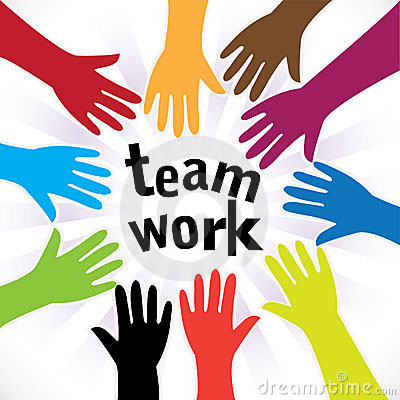How to Work With Teams in Business School
Post Views 2First you get acquainted. Then you get mad. Then you get going. How to avoid a learning team disaster, and escape with your sanity — and transcript — intact.
It’s the well-meaning guy who won’t shut up about the three years he spent at Goldman Sachs. It’s the erratic genius who can do elaborate decision trees in her sleep, but never learned the meaning of the word plagiarism. It’s the slacker who hasn’t shown up for a meeting in two weeks. It’s the 2 a.m. argument with a former English major over where to put a semicolon.
It’s the epiphany: “Oh my God, my grade depends on them?”
Such is the often annoying and frequently surreal world of business school teamwork, a place where the very qualities that make the greatest individual MBA students — ambition, brilliance, and a certain stubborn focus — can also make for the most dysfunctional learning groups.
Team learning isn’t new to business schools, of course, but the emphasis on group work is more evangelical than ever. A lot of the credit (or blame, if you’re still arguing about that semicolon) should go to Donald Jacobs, dean of Northwestern University’s Kellogg Graduate School of Management. Back in the mid ’70s, he met with business leaders and hit upon the radical idea that future managers should learn to cooperate as well as compete.
Cooperation is one thing, but anyone who’s ever hunkered down with a team knows how staggeringly inefficient groups can be. Not to mention that the whole notion of collective contribution can carry a touchy-feely taint, especially among hard-core quant jocks looking for ever-faster ways to calculate net present value. Still, common sense suggests the value of collaboration: Not only are friendships (and future contacts) forged over the 3 a.m. coffeepot, but the nuances of an increasingly complicated business world often elude people who work exclusively in one area.
It’s systems theory: Cross-functional teams provide different viewpoints. You need as much complexity on a team as you have in the environment, because what looks like a marketing problem to one person may actually be more effectively considered as a finance problem when the entire group looks at it.Managers in Western society spend 65 to 85 percent of their time listening. That means, in one sense, that you’ll be getting paid 65 to 85 percent of your salary for listening. Group learning obviously encourages the habit.
It can also encourage a mean left hook or a head butt when time is short, tensions run high, and personalities begin to clash. There is some comfort, though, in the thought that whatever circle of hell you may find yourself in, somebody two years ahead of you has almost certainly suffered more — and still emerged with his grades and career unscathed. But it goes beyond simple comfort. In the interests of efficiency, to say nothing of intrastudent bonhomie, it makes sense to learn from the mistakes of others, and to take any and all available shortcuts to team harmony. As idiosyncratic as any individual team may be, most go through a series of predictable stages, known (in typically poetic B-school argot) as forming, storming, norming, and performing. And mercifully, there are strategies for negotiating each of them.
Forming: Of Quants and Kickball
A major factor in your experience will be whether teams are assigned or left for students to choose. In all likelihood, you’ll be placed in a group during the first few days, if not preterm. Most schools have developed elaborate systems for such assignments. Dartmouth’s Tuck School of Business Administration is typical. “We think about what kinds of tasks a group is going to perform,” says a dean. “Then we look at what kinds of backgrounds students have, and spread them around to fertilize interaction.”
Less frequently, students will be allowed to choose their own teams. That’s a mixed blessing, and, of course, a rare occurrence in the “real” business world. “It can be a big nightmare,” says a recent graduate of Duke’s Fuqua School of Business. “You’re in a class where you don’t know anyone, and it’s like the last five kids to get picked for kickball: ‘Uh, I guess we’re a group.'” For one econ course, he remembers, “The professor said, ‘Don’t team up with four engineers,’ and we were like, ‘Yeah, right,’ and did it anyway to be sure everyone knew how to run spreadsheets. But we found that when you put four quant types together, they tend to be uptight and run things into the ground.” As the year wears on, being able to look at problems from multiple points of view becomes increasingly important. So in picking your team, it makes sense to follow the rationale of those B-schools that make assignments: Try to be as well rounded as possible. If you don’t, your group may end up like a squabbling, fourth-place baseball team with three all-star pitchers and a collective batting average of .188.
But just because one member of your splendidly diverse team claims to possess the precise skill needed for an assignment, don’t bow down to the benevolent gods. In fact, it pays to beware the overconfident specialist — especially during the first month, when classmates are insecure and eager to impress. “I heard a story where there was a major assignment due, a big case involving an airline,” says a second-year at the University of Rochester’s Simon School of Business. “One person said, ‘Oh, I worked for that company. Let me do most of this.’ He showed up with a total piece of shit, and the team had to rewrite the report.” The moral: Just because someone worked in marketing at Delta doesn’t mean he’s an expert on airline regulation.
As a team begins to take form, differences in job experience, academic interests, and cultural backgrounds start to matter far less than differing attitudes about the quality of work the group is going to produce. “Almost immediately, you see the biggest conflicts between those focused on getting the highest grades and those for whom it’s just not a value,” says Monica McGrath, Wharton’s director of leadership and learning teams. Students who’ve been through it concur. “It’s most important that you all agree on the level of effort you put in,” says the recent Duke grad. “I knew people who teamed up with a few drinking buddies, and only one of them really cared about doing good work.”
The definition of good may vary from team to team; that’s especially true at places like Harvard Business School, where no recruiter will ever see your grades, or Carnegie Mellon, where there’s no grade distribution curve. Generally, second-year students spend a lot less time obsessing over the difference between Ps and HPs, and are much happier for it. Learn from them. According to a second-year at NYU’s Stern School of Business, “Companies are hiring the whole package. They’re looking at your leadership, your activities. Not a single recruiter has asked about my grades.”
Storming: I’m Okay, You’re a Jerk
Sure, new acquaintances can be polite and solicitous. But in B-school, instant pressure (i.e., the first project) can mean instant trouble. That’s deliberate. “Some groups are dealing with conflict on day one. We’re trying to get people to the point where they say, ‘I don’t know who the hell you are, you don’t know who the hell I am, but we’re going to make this work,'” says an associate dean of MBA programs at Washington University. “We’re trying to accelerate that grudging acceptance of one another.” The operative word is accellerate: In MBA programs, the normal growth of work relationships is squeezed into a dangerously short amount of time. Some teams have throw-downs within the first two weeks; but for most groups, conflict is less a matter of discreet shouting matches than it is of quiet tensions, nasty undercurrents, and loaded subtexts (Not unlike a marriage).
But here’s the surprise: According to professors, if a group doesn’t have these dynamics, it may not be performing well. Part of the difficulty is that students can’t distinguish between good conflict and bad conflict. There’s relational conflict: ‘I don’t like you, you’re weird,’ which we want to minimize. And then there’s task conflict, which has to do with having different ideas about how to get a job done. That’s when you have a marketing person and an engineering person trying to solve a customer service problem. Occupational diversity doesn’t have a positive effect until you have conflict like this. The opposing viewpoints of an ex-accountant and a former lawyer may actually be a group’s greatest strength, because the best work is often done in the gaps between perspectives.
Some clashes, of course, have less to do with past occupations than with personalities. And in the getting-to-know-you-really-really-fast storming phase, some personalities emerge right away. One of the earliest problems teams face is the Dominator. This person tends to direct. ‘I’m going to do this, you’re going to do that.’ And that often leads to someone withdrawing from the group.” Teams should create a process and assign a set of roles as early as possible. Give a quiet person a role that requires him to talk, like having him lead the discussion at the next meeting. If that doesn’t work, try dealing with Dominators the way first-year HBS students do: They keep a stuffed shark around to toss at anyone who gets too overbearing.
The other x factor that teams have to come to terms with is gender. By all accounts, business school is the enemy of romance, probably because there’s nothing less sexy than watching someone grind out a process flow diagram in a library study room. But subtle assumptions about men and women persist, and they can affect a group’s work. “I have observed situations where it’s assumed the woman will be the group’s Peacemaker and secretary,” says one dean. “Even worse, sometimes she accepts that role, no matter what her actual strengths are.”
Still, theory about relational conflict is one thing; that total jackass sitting next to you is another. After a couple of months of stress and sleep deprivation, even a harmless-looking cost-accounting assignment can turn the most mild-mannered student into Travis Bickle. Vanderbilt second-year Sam, a musician, watched his personality skirmishes with a teammate quickly escalate from angry e-mails to serious physical threats. Infuriating situations do arise, and having one difficult member can be like multiplying your group’s collective potential by a fraction — or worse, by zero.
A team may need to save itself in extreme circumstances, even if that means doing something akin to amputation. Some groups have been known to approach the professor about kicking out a problem team member.
Norming: A Toilet Full of Idealism
About halfway through the first term, when the work really heats up, a group’s dynamic will start to resemble that moment when a well-designed backyard football play degenerates into everyone-run-around-until-someone-gets-open. But against that background of chaos, an interesting thing happens: All the personal politics and petty arguments fall to the side as the team rallies to conquer the task at hand. Some refer to this phenomenon as “norming.” Others simply call it survival. “You come here with all these high ideals about really learning all the material for every project,” says the University of Rochester second-year. “Then the work hits, all that goes down the toilet, and you start asking everyone, ‘Okay, so what do you do best?'” Of course, if each team member focuses only on his or her area of expertise, nobody learns anything new. How much intellectual curiosity should be sacrificed on the altar of efficiency is a personal decision, but common sense dictates a few guidelines. Case discussions, for example, are great opportunities for everyone to have a say. But with more quantitative work, many teams find that it makes sense to rely on a member who’s willing to lead everyone through the material.
Perhaps the most difficult job is tackling a paper en masse, because writing by committee is inherently inefficient. “Doing a 20-page paper is horrible,” says a Duke alum, “You spend tens of hours arguing over commas in the middle of the night; people get worn down and pissed off.” First, everyone in the group should brainstorm together, reaching for ideas without judgments. Then they should go back and make decisions about which ideas are actually worth keeping, and how they contribute to the general shape and direction of the paper. Don’t get sidetracked: “Keep your eyes on the prize,” says Talbott. “If a professor says, ‘You should cover x, y, and z,‘ then stay focused on that and nothing else.” Finally, find one person in the group who wants to take a stab at a first draft. “After you’ve got a draft, let one or two other people take a pass at it, just to make sure it’s on track,” adds Tiffany, a second-year at Tuck. It’s also a good idea to let everyone see the final version.
Performing: The Promised Land
After nearly a year, after your eyes have gone squinty from lack of sleep, after you’ve fought off thoughts of frailty, failure, and homicide, you can expect another epiphany, a moment when the team shifts into overdrive and the engine purrs.
How will you know when your team is approaching its potential? Gaming — finding out what a professor wants on a paper or for the entire course — is an essential part of business school, and for effective groups, it becomes second nature. Even when it’s insincere. “I’ve regurgitated stuff I completely disagree with, and it’s worked perfectly,” says the Duke alum. Also, experienced teams spend as little time as possible on process. “At first, people love to talk and have meetings, and then have meetings about those meetings,” says Christin, an MBA candidate at Vanderbilt. “Toward the end of the semester, we were spending much less time talking and more time actually doing things. You really see this in second-year groups.”
Smart groups also stop worrying about grades. “There’s so much emphasis placed on numbers when you’re applying to business school, it’s natural to think they’re important,” says the deputy dean of student and alumni affairs at Carnegie Mellon’s Graduate School of Industrial Administration. “But during the job recruiting process, no one cares what your grades are. The emphasis is on deliverable skills. They’re going to say, ‘We’ve got this plant in Poughkeepsie with a problem. How would you handle it?'”
The final breakthrough is understanding that effective teamwork is all about knowing what you don’t have to do. “There’s no way you can accomplish everything,” says Katie, a second-year at Kellogg. “Even in real business situations, you may have to make decisions without all the information you need. The trick is to remember the 80-20 rule.” The notion that 20 percent of your business accounts for 80 percent of your profits is an important principle. Concentrate on the work that contributes the most to your grade. As one student puts it: “At first, if you had one little thing that didn’t work, you’d stay up all night to fix it. Now you just say, ‘Looks close enough to me. Let’s go get some beer.'”
How to Work With Teams in Business School by Harrison Barnes



 How to Work with Know-it-alls
How to Work with Know-it-alls  How to Successfully Work with Family Members
How to Successfully Work with Family Members  Top 5 Ways to Tell if a Layoff is Coming: Is Your Job in Jeopardy?
Top 5 Ways to Tell if a Layoff is Coming: Is Your Job in Jeopardy?  Working as an Independent Contractor
Working as an Independent Contractor  Know How to Survive a Toxic Workplace
Know How to Survive a Toxic Workplace  Let It Begin In 2010
Let It Begin In 2010  Which Celebrities are Police Officers on the Side?
Which Celebrities are Police Officers on the Side?  Body Language That Can Help You Succeed at the Office
Body Language That Can Help You Succeed at the Office